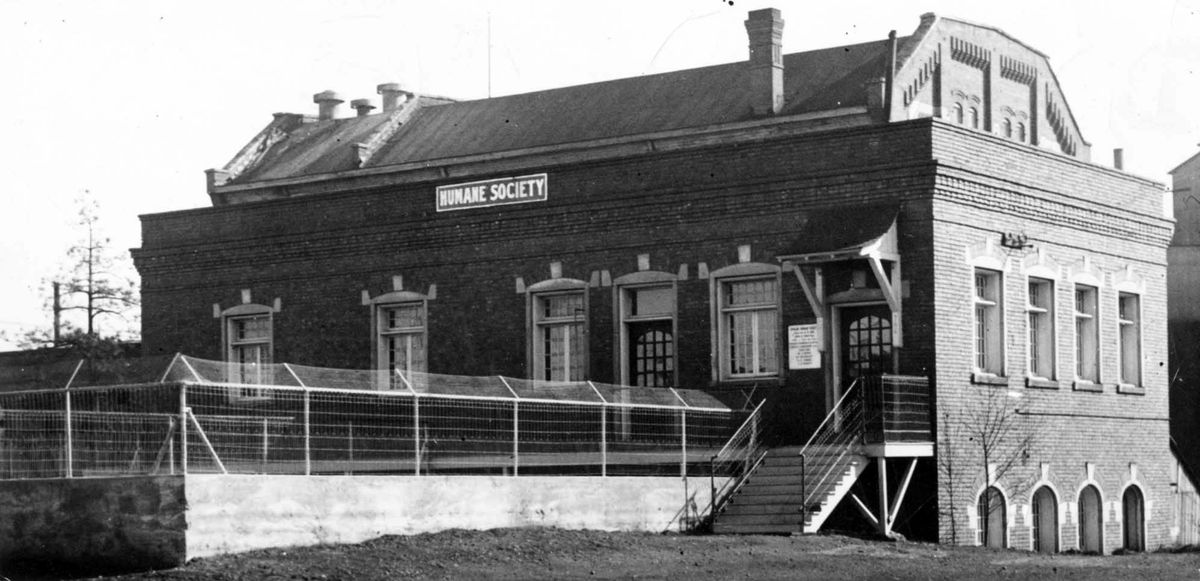Then and Now: Spokane Humane Society

William Stone McCrea, raised in Rathdrum, arrived in Spokane as a teenager in 1887. He enrolled in business classes at Spokane College and picked up a job selling insurance.
When the downtown area was destroyed in the 1889 fire, he manned the information booth, describing for visitors a bright future for Spokane, even though the landscape was still smoldering. For his enthusiasm, the tall, athletic McCrea was nicknamed the “beardless boy wonder.” He succeeded in his businesses, joined several clubs and lodges, and married in 1895. And in 1897, he helped start the Spokane Humane Society.
Concern for the “voiceless,” both children and animals, was strong and growing in the region. McCrea guided the newly formed group, serving as vice president or president for the next 50 years. The humane society became the city dog pound in 1901, the same year Washington state passed laws against animal cruelty.
The law allowed humane society staff to be sworn in as “special humane officers.” The first eight were women. Their keen eyes watched teamsters and drayers, alert for animals left without food or water, angry drivers beating horses or animals too old to be working.
The group built a brick building in 1910 next to the Spokane Flour Mill on Broadway. Agnes McDonald, a wealthy widow, was one of the first officers. In July 1911, she saw a man urging his horse to pull a massive load. She showed her badge and ordered the man to the curb. She held him until police arrived. She knew that the overloaded wagon was well beyond the legal guidelines of 3 pounds of cargo for every pound of horse. And the incline of the street dictated a decrease in payload.
As cars replaced horses on the street, the humane society turned its attention to cats and dogs. The group severed the contract with the city over money issues in 1961. Agnes McDonald, their staunchest supporter, died the same year at age 94. McCrea died in 1946.
The group turned to private fundraising and in 1972, bought 40 acres near Havana and Francis for a new facility.
The post-Civil War push for animal rights, said the Spokane Falls Review, was created “because cruelty to poor beasts of burden can be witnessed on the streets almost any day.”
– Jesse Tinsley